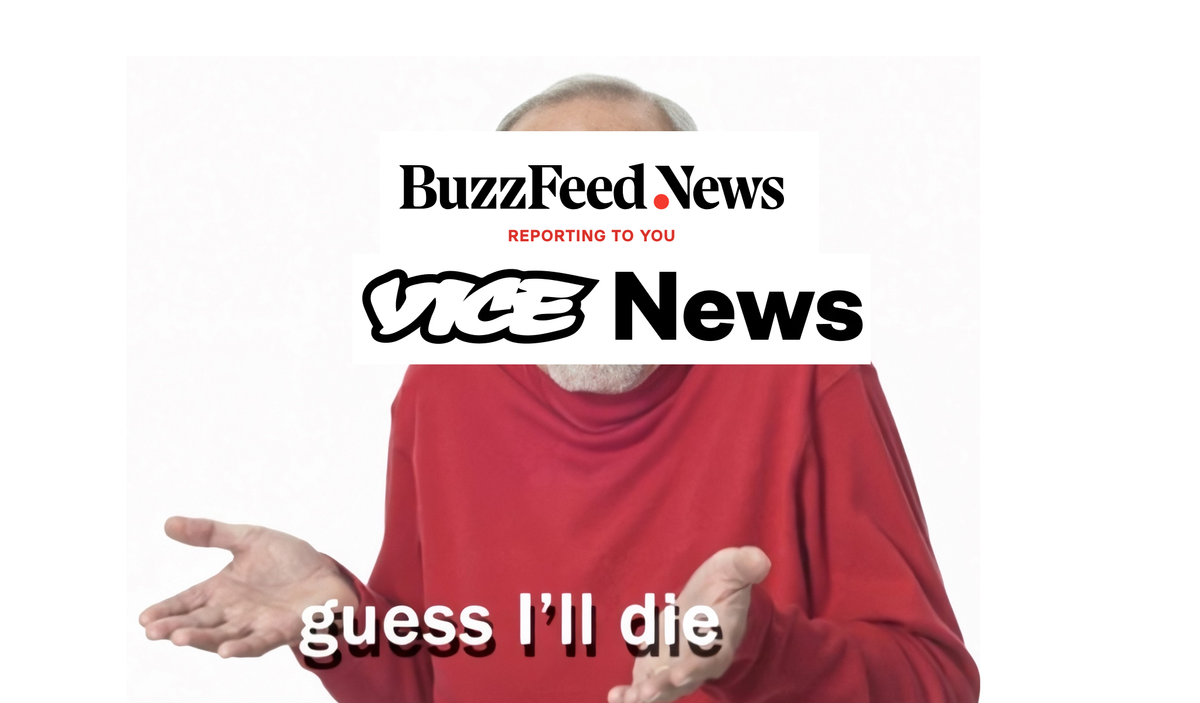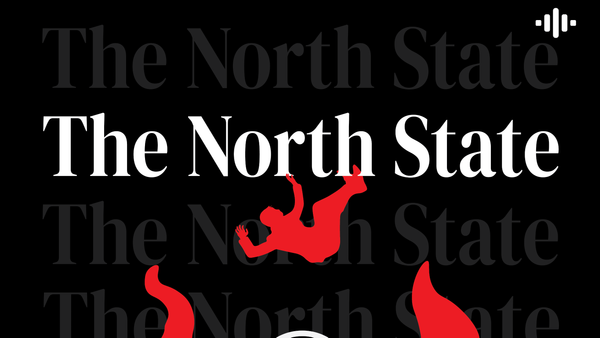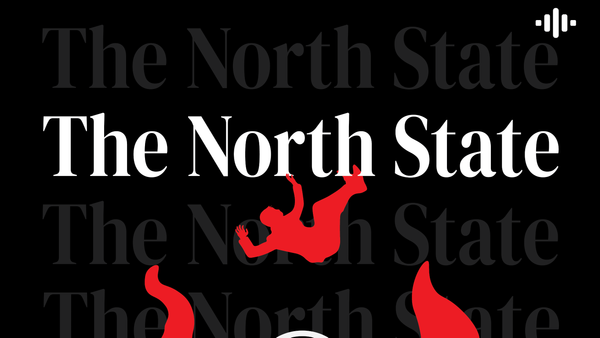The Slow Death of "Cool" News Media
Buzzfeed News shut down, Vice lays off staff, is there any hope for alternative media?

It has been quite a time lately for alternative digital news media. On April 20, Buzzfeed CEO Jonah Peretti announced that Buzzfeed News would close permanently, and laid off 15 per cent of the company’s workforce. Then on April 27, Vice Media announced that Vice News Tonight will be cancelled, and “painful but necessary” layoffs would occur across their news divisions. 100 people will lose their jobs at Vice, while 60 people at Buzzfeed News will lose their jobs, part of the 120 people across the company as a whole. Before this momentous week, Vox announced in January that it would cut seven per cent of its staff
Layoffs in journalism have become sadly routine, but the commonalities shared between Buzzfeed News, Vice News and other similarly branded outfits are their intended purpose to be the new breed of journalists. They were the self-proclaimed pioneers in the digital frontier of cool journalism. This worked for a while, Buzzfeed News even won a Pulitzer, but it was not to last it seems. Instead of leading the way for new voices to arise outside of the established news media channels, these brands and companies have struggled to stay afloat.
This has even been felt specifically in the Canadian context. Staff at the Victoria-based Capital Daily were fired after refusing to promote their boss’ company. Back in 2020, 19 Vice Canada union members were laid off, deeply affecting their coverage in our country. It’s almost been lost in the noise that Huffpost Canada shut down in the middle of 2021, a move that took many by surprise.
This isn’t to play the sympathy card for the owners of each outlet, or even the outlets themselves, many of which face the same issues that legacy news media do in their reporting. It would be very easy to pull up some articles or a reporter at each outlet that proves they aren’t as outside the norm as they like to declare themselves, but that’s besides the point. Of course these outlets are part of the capitalist system. We all are, including Substack and this newsletter. What matters is that the few avenues for expression outside the outlets owned by billionaires or hedgefunds, like the Washington Post or PostMedia, are being shuttered unceremoniously.
Further still, gonzo journalism as an art-form has pretty much gone on life-support. Just look at Matt Taibbi’s self-immolation to defend his objectively poor reporting on the Twitter files and billionaire crybaby Elon Musk. If there’s a better example of someone following the money for a grift, I haven’t been able to find it.
This decline in alt-journalism is a sign of the dire state of our news cycle. The modern news media landscape in Canada and the US focuses on bombshell stories, immediacy in relaying breaking news, and a broad focus on stories of national or provincial/state interest. The biggest players in these industries are either privately-owned, or otherwise funded by wealthy benefactors or by the state. These are apparently the only two options for an outlet to continue publishing lately. It’s difficult to orient yourself outside that dynamic and keep your organization afloat.
This has not boxed out other news organizations from starting or continuing phenomenal work, as there are plenty of independent organizations, but their funding is not as secure. For example, The Tyee, a fantastic publication based in BC, receives 33 per cent of its funding from wealthy contributors. This is not a dig against The Tyee, who also raises 46 per cent of their funds directly from readers, but to show that even publications that do good work need support from the wealthy to continue operations. It’s a symptom that’s felt system-wide.
So what’s left as the best course of action for journalists entering the job market? Unfortunately, it's a highly individualized approach. Newsletters (like this one), sizeable social media followings and freelance opportunities are highly sought-after. Getting your name to editors, who then get it to readers, who then might recognize your voice and quality of work, so that they can follow you specifically. This is hardly a solution for the crisis in alternative voices. This approach breeds competition, clout-chasing and opportunism. There are voices that have resisted those temptations (hopefully you feel I’ve done so) but that doesn’t change what’s incentivized by this dynamic.
The focus on national, international and provincial stories that dominates these outlets and individual reporters has also buried crucial local reporting. Communities outside of big cities struggle to get accurate news relayed to them because of financial difficulties. While the few options available in Canada are either the CBC or something like a Bell, Rogers, or Corus owned broadcast outlet. Hardly the alternative to corporate news that people deserve. But how can journalists embed themselves in a community to do work when that work doesn’t provide them enough to live?
This issue may only be comorbid with the decline in alt-news, but the effects are similar. The only places that continue to have the money to pay journalists are wealthy corporations or state-funded outlets. The most profitable positions there are located in big cities. Alt-news hasn’t changed that dynamic at all. Even with their different approach, it hasn’t provided the stability that these other institutions can. This isn’t to say there aren’t layoffs at PostMedia, Bell, the CBC or even the New York Times, but they’re more likely to do so without folding entirely. In the choice between “might get laid off as the company dies” and “might get laid off but the company will stay around way longer,” it’s clear which is the lesser of two evils.
Perhaps I’m getting a little philosophical (they say it happens in the autumn years), but I also feel a sense of betrayal by these latest moves. I was not promised, or even acknowledged, by these outlets, but I always hoped I would have a byline published by them. Like many other countercultural cis het white men, I found the reporting of alt-news sources like Vice, and gonzo journalists like Hunter S. Thompson to be compelling in ways that more mainstream sources couldn’t be. It seems as though a future in that brand of journalism seems increasingly dim.
But the contradiction of journalists is that they do the work as a labour of love. This, unfortunately, is what allows a lot of us to be exploited and abused by the industry that controls our labour. Hopefully some day soon there can be a prominent media cooperative which helps tamper the worst of these effects. One that covers local news with the level of importance it deserves. One that happily publishes pieces on drug culture, LGBTQ2S+ counter culture, or the pervasive systemic racism in the music scenes we love. One that does good work in underserved communities. One that pays the reporters who do the work fairly, and treats them with the respect they deserve.
While I’m at it, I may as well wish for a unicorn, or affordable housing.
A reminder that I am on vacation next week, so there will be a delay in The Catch articles.





